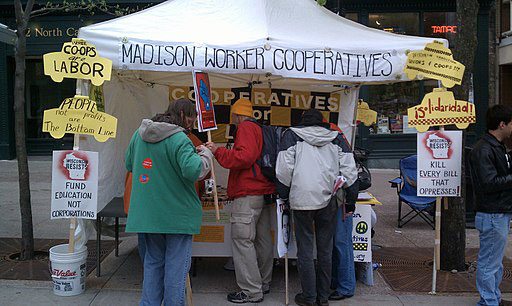
August 7, 2017; Voice of OC
Over the years, NPQ has covered several stories where a city declares itself as open and ready to actively support worker cooperatives. Some examples are Rochester, N.Y., New York City, and Madison, Wisconsin. Now, top officials in the city of Santa Ana, California, have unanimously passed a resolution to support small business development through worker cooperatives.
Last week, the city council said that establishment of cooperatives keeps wealth flowing more broadly within the community. They suggested that when local business owners begin to consider if they may want to retire, conversions to worker cooperatives should be encouraged.
In 2015, advocates helped push a bill through the California Legislature, establishing a legal framework for co-ops across the state and affording them certain tax benefits and active support by local government would be invaluable.
Sign up for our free newsletters
Subscribe to NPQ's newsletters to have our top stories delivered directly to your inbox.
By signing up, you agree to our privacy policy and terms of use, and to receive messages from NPQ and our partners.
Staff were directed to study what actions the council might be take to support such conversions. Some of the measures to be investigated are incentives like access to grants and lower cost business licenses. Further, staff has been asked to work with local stakeholders to explore what might be included in a business ordinance encouraging worker cooperatives. The report is due back in 90 days.
Councilman Jose Solorio says that support of cooperatives is a good way the city can help “reduce exploitation” of workers currently in underground jobs while growing a healthy shared local economy.
Santa Ana, with a population which is 80 percent immigrant, is already home to a number of immigrant cooperatives supported by Santa Ana Building Healthy Communities, a 10-year initiative of the California Endowment. Around 22 percent of the Santa Ana community lives below the poverty level, according to the latest census, and some workers cannot be legally hired due to their undocumented status. Sandy Chiang, program manager at Building Healthy communities, said that some of the motivation for the recent interest in facilitating cooperative development is the gentrification of the area. This, she says, has resulted in a lot of hipster shops replacing local mom-and-pop shop endeavors.—Ruth McCambridge











